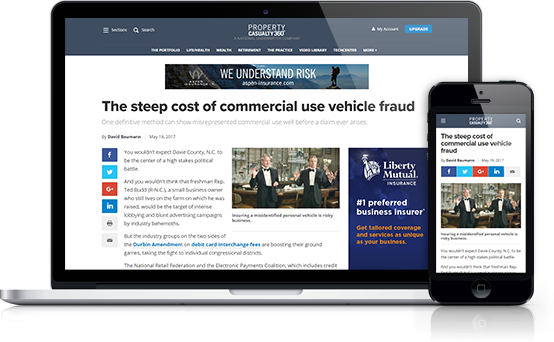 Dynamic and demanding market conditions have created challenges small businesses must overcome, creating more opportunities for independent agents to demonstrate their value as experienced advisors, to design innovative and robust insurance programs, and ultimately to grow their businesses.
Dynamic and demanding market conditions have created challenges small businesses must overcome, creating more opportunities for independent agents to demonstrate their value as experienced advisors, to design innovative and robust insurance programs, and ultimately to grow their businesses.
American businesses, like those in other countries across the globe, are struggling as they respond to formidable market challenges that include recessionary economic pressures, supply chain issues, labor shortages and evolving customer expectations and demands.
With small business operators prioritizing their most pressing business concerns and at the same time experiencing rate increases due to market conditions, agents are pressured to step up to offer more counsel and service. This creates an opportunity to provide customers crucial insurance protection and uncover new business opportunities in the process.
As we work with our agent partners, we have seen many benefit from the following three effective strategies to improve their small business books.
Leverage technology to drive efficiency in new business placement
Agents are leveraging technology as a point of differentiation, supporting their customer service efforts by offering complete, accurate and customer-centric quotes in real-time. Agents have limited time and are managing workloads with smaller staffs, thus relying on new technology solutions to generate fast and accurate quotes.
Agents increasingly are working with carriers that are investing in new digital gateways via API technologies to make it easier to obtain multiple, bindable quotes at one time, based on appropriate coverage levels and limits. Non-bindable quotes and incorrect coverage levels and limits often lead to more questions for the agent and customer and unnecessarily delay the quote-to-issue process. Some carriers, such as The Hanover, enable bindable quotes and have added the ability to select the most common coverages directly in the vendor’s platform, delivering a quote that is more responsive to the customers’ needs and that saves agents time when they go to issue the policy.
Beyond these new digital connections, for direct quoting capabilities, choosing a carrier that offers both standard and specialty lines within its online quoting can help streamline the placement of small business. This enables agents to access one system to quote and issue a cohesive solution for their customers to help meet the needs of the entirety of the small business’ exposures — saving time and energy.
Optimize an existing small business book
Over 60% of small business clients that purchase more than one policy are split across multiple carriers and intermediaries. As a result, the typical mid-sized agency has at least 50 carrier relationships and sometimes more, leading to diluted relationships and potentially lost opportunities. When accounts are split, agents are required to work with different carriers on servicing, in different systems, thus spending more time on accounts than necessary. This is wasted time that could be put towards meaningful customer conversations, enabling agents to uncover additional opportunities to write new coverages needed by the customer. In addition, customers oftentimes benefit from a one-carrier solution by having the convenience of one bill, seamless coverage to prevent coverage gaps, and access to one customer portal for self-service.
Unfortunately, it can be challenging for agents to understand where the opportunities within their books of business exist between split accounts, monoline accounts, and distribution of business across different carriers to make the most of their small business accounts. Partnering with a carrier that offers agency-centric tools can help identify opportunities for consolidating markets or account-rounding.
For example, The Hanover offers a unique consultative engagement to agency partners through Hanover Agency Insight, which includes a comprehensive view of an agent’s entire book of business to help uncover and identify opportunities to better serve customers and optimize their small business book. This insight can help agencies improve their small business strategy and prioritize where the opportunities to improve are the greatest. This approach is just one of the tools available to agencies to help ensure their customers are properly protected while improving their performance metrics.
Maintain the right level of service for existing customers
The most successful agents spend more time engaging customers in meaningful ways to help reduce risks and align coverages, instead of getting bogged down with administrative tasks. Unfortunately, many agents get stuck spending their time on the transactional aspect of customer relationships, and not enough time on what will grow their business – more time consulting with customers. Across all markets, we are seeing small business customers looking for more service and guidance from their agents, especially in the wake of rising claims activity and increased rates. To extend an agency’s servicing in an efficient way, they should leverage carrier-dedicated customer service centers that offer licensed agents to complete transactional requests, discuss renewals, offer consultative servicing and new business sales support. Carriers that offer an account-centric approach within their service center, including the servicing of any specialty policies, will support new business growth and customer excellence. In fact, according to our data, agents who work with a service center write 46% more new business in the first year.
For agents to be successful now and in the future, partnering with carriers dedicated to supporting independent agents and investing in solutions to help them optimize their small business operations will be critical.










 Copyright © 2025 ALM Global, LLC. All Rights Reserved.
Copyright © 2025 ALM Global, LLC. All Rights Reserved.